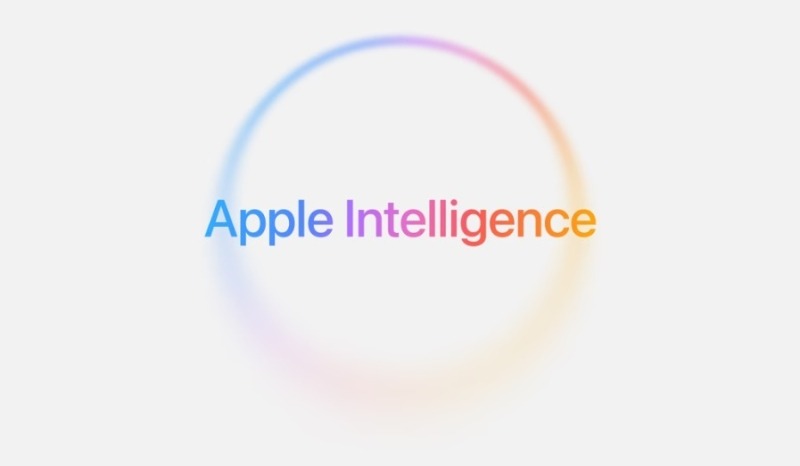Apple has had its fair share of triumphs over the years, establishing itself as a global leader in consumer technology. However, despite its consistent innovation, the company now faces a significant challenge in one of the most critical areas of tech today: artificial intelligence (AI). Specifically, Apple’s AI and virtual assistant, Siri, have fallen behind competitors like Microsoft’s Copilot+. The gap has become so noticeable that Apple has been forced to bring in a veteran software executive to tackle these issues and elevate the company’s AI capabilities.

For years, Apple has been known for its sleek designs, user-friendly interfaces, and premium-quality devices. However, its virtual assistant, Siri, has not evolved at the same pace as other tech giants’ AI-driven platforms. This gap is particularly evident when comparing Siri to Microsoft’s Copilot+, a powerful AI system designed to work seamlessly across multiple devices and platforms, offering capabilities that far surpass Siri’s offerings. As Apple strives to maintain its competitive edge, it’s clear that Siri and the company’s AI infrastructure need substantial improvements to keep up.
Siri’s shortcomings are evident in several key areas, including its ability to understand complex queries, provide accurate responses, and integrate with third-party services. While Siri is still widely used on Apple devices, many users have expressed frustration over its limitations, especially when compared to more advanced AI systems like Copilot+. Microsoft’s AI assistant is not only more intelligent but also more capable of handling intricate tasks, thanks to its deep integration with the Microsoft ecosystem and advanced natural language processing (NLP) models.
The decision to bring in a seasoned software executive highlights the gravity of the situation. Apple has recognized that it needs to act quickly and decisively to close the AI gap before it becomes a significant disadvantage in an increasingly competitive market. The executive, who has extensive experience in AI and software development, will be tasked with rethinking Siri’s architecture, improving its capabilities, and ensuring that Apple’s AI can compete with the best in the industry.
One of the key areas of focus will be enhancing Siri’s understanding of natural language. While Siri has made strides in recent years, its ability to understand complex sentences, nuances, and diverse accents still lags behind other AI assistants. Microsoft’s Copilot+, for example, is built on advanced NLP algorithms that allow it to interpret and respond to queries in a more human-like manner. This level of sophistication is something Apple needs to replicate if it wants Siri to be a true contender in the AI space.
Furthermore, the integration of AI across Apple’s product ecosystem is another area that requires significant attention. While Siri works well on individual Apple devices, it doesn’t have the same level of cross-platform integration that competitors like Microsoft’s Copilot+ offer. Microsoft’s AI system can seamlessly interact with a wide range of devices, including Windows PCs, mobile phones, and even third-party applications, giving users a more unified experience. Apple will need to rethink how Siri can work across its ecosystem, from iPhones to Macs to its expanding lineup of wearable devices.
To make these improvements, Apple will need to focus on several key aspects of AI development. First and foremost, the company will need to invest in more advanced machine learning models. Machine learning is the foundation of any AI system, and Apple’s current models may not be sophisticated enough to handle the complexities of modern language processing and task execution. By developing more robust machine learning algorithms, Apple could improve Siri’s ability to recognize context, understand intent, and respond more intelligently.
Another critical area for Apple to address is the development of a more diverse and extensive database of knowledge. While Siri can answer basic questions and perform simple tasks, its knowledge base is still limited compared to other AI platforms. For example, when it comes to answering technical questions or providing in-depth information on niche topics, Siri often falls short. Copilot+, on the other hand, is backed by Microsoft’s vast cloud-based knowledge base, which allows it to provide more detailed and accurate answers.
Moreover, privacy concerns will continue to play a crucial role in Apple’s AI development. The company has built its brand around privacy and user security, and it will need to ensure that any improvements to Siri or its AI systems do not compromise these values. This could present a challenge, as more sophisticated AI models often require access to large amounts of data in order to improve their performance. Apple will need to find a way to balance the need for better AI capabilities with its commitment to user privacy, ensuring that any data used to train Siri is kept secure and anonymous.
The addition of a veteran software executive to the team is a step in the right direction, but it will take time for Apple to catch up with its competitors in the AI space. The company has made progress with features like the M1 chip, which has enhanced the performance of its devices, but it will need to go beyond hardware improvements and focus on software if it wants to close the gap with Microsoft’s Copilot+ and other AI-driven platforms. Apple has the resources and expertise to make these changes, but it will need to act quickly and decisively in order to maintain its position as a leader in the tech industry.
The evolution of AI technology is happening at a rapid pace, and the competition is only getting fiercer. For Apple, Siri has been one of the most important components of its product ecosystem, but its limitations are becoming more apparent as other tech giants push the boundaries of what’s possible with AI. If Apple is serious about regaining its competitive edge in the AI market, it will need to make significant investments in both talent and technology. The hiring of a veteran software executive is a promising first step, but it is just the beginning of a much larger effort to reimagine Siri and Apple’s AI offerings.
In the coming months, we can expect to see a more aggressive push from Apple to enhance Siri’s capabilities. This could include new software updates, improved machine learning models, and a greater emphasis on integration with Apple’s broader product ecosystem. However, the road ahead will not be easy. Microsoft, Google, and other competitors are already well ahead in the AI race, and Apple will need to work tirelessly to close the gap.
The future of AI is bright, and the companies that succeed in this space will be those that can offer the most advanced, user-friendly, and intelligent solutions. For Apple, the stakes are high. Its users expect nothing less than the best, and if Siri and Apple’s AI systems continue to fall behind, it could jeopardize the company’s reputation as a leader in innovation. Only time will tell if Apple can rise to the occasion and deliver an AI experience that rivals its competitors, but one thing is clear: the company is committed to making Siri smarter and more capable than ever before.










Add Comment